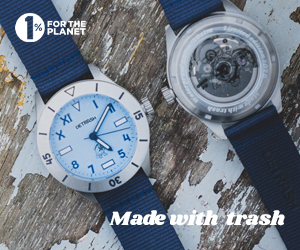Hemp has been used for everything from ship sails to a sturdy artistic canvas to a building material in ancient Egypt.
Today, hemp has found a fashion accessory friend in Hempnath. But before we discover this new brand, let us dig into the origins of this versatile fibre.
From cultivation to legislation
Archaeologists discovered hemp materials made over 10,000 years ago, suggesting that hemp is one of the earliest plants cultivated by our species.
Hemp is the term used to describe cannabis when it is harvested for industrial and any non-intoxicating use. Cannabis is a family of flowering plants, which features cannabis sativa, cannabis indica, and cannabis ruderalis. Indigenous to Central Asia and the Indian subcontinent, it grows easily.
Hemp uses less land – producing 250% more fibre than cotton – and has the highest yield of any natural fibre. It’s resilient too, requiring much fewer chemical inputs and water to cultivate than other natural fibres.
With a climate emergency on our hands, industrial hemp could be one of our solutions, as it has been scientifically proven to absorb more CO2 than it releases per hectare than any forest or other commercial crop.
Tetrahydrocannabinol, or THC is the chemical responsible for the psychological high we get from marijuana. In the UK, hemp is the legal definition when classifying any cannabis plant that has less than 0.2% THC content when dry. Of the three plant types, it is the strain of the cannabis sativa plant that is specifically used for hemp.
Moral fibres
As a fibre, hemp is high performing, with its washable, antibacterial, and breathable qualities. It’s also extremely comfortable to wear.
Despite being a versatile and environmentally sound agricultural crop, the past 100 years has been unkind to hemp.
Hemp is misunderstood. The free-spirited swinging sixties did the fibre no favours, as hemp clothing was considered bohemian and frumpy, popular only with those intimate with the intoxicating effects of its leaves.
When the first wave of ethical fashion came just over two decades ago, hemp found a place of cool, levitating out of its hippie high.
Pioneer brands like THTC (The Hemp Trading Company) began producing politically conscious streetwear that has since grabbed the attention of many celebrities over the years, including Woody Harrelson, Ed Sheeran, Rag’n’Bone Man and Stormzy. They’ve also created merchandise for bands like Morcheeba.
THTC was a founding member of Common Objective (formerly the Ethical Fashion Forum) and a founding member of the British Hemp Association, which lobbies to remove the barriers that are preventing a thriving British hemp industry.
Having paved the way for new retail brands, THTC is moving into private label garments for the cannabis industry, as Gav Lawson, co-founder of THTC, explains: “Having been one of the pioneering hemp brands, THTC has built up excellent connections with our production partners. The cannabis industry has become big business with trade shows all over Europe. We want to green these trade shows by offering hemp product solutions, from caps, beanies and socks, to wallets, tote bags and lanyards.”
Hemp fashion is seeking more champions of cool, and we’ve already found one.
Hemp of the Himalayas
Heading back to the origins of where hemp was first cultivated, Hempnath is one of the latest brands to advocate for the plant. Rooted in the Himalayas, co-founder Ramuna Pun set up the brand with his fellow consciously-minded friends.

“While based in the UK we are all originally from Nepal and we always wanted to create something that portrayed the simplicity of our motherland, while providing job opportunities to marginalized communities.”
“Our visit to Nepal in 2018 revived that feeling as we explored the country’s arts and craftsmanship. It felt like a calling from a higher force to connect with our roots again.”
Hempnath’s name features the Sanskrit word “nath” which means protector and lord and is closely connected to Hinduism and Buddhism.
The product collection, which currently includes backpacks, laptop cases, waist bags, totes and pouch bags, is made with 100% pure hemp, while the bags interior are made with cotton and recycled rice bags, providing a durable lining. The beautiful neutral colours provide a wonderful timeless appeal.
Sourced from rural villages in the western hills of Bajhang, Bajura and Rolpa in Nepal. More than 80% of the population here depend on agriculture and have been cultivating hemp for centuries.
Hempnath might be a drop in the ocean among major fashion brands, but its importance to these communities who grow and create the bags is vital, as families rely on the fair and sustainable income they receive.
After the intricate and rigorous process of sourcing hemp fibres, the resulting yarn gets taken to Nepal’s capital, Kathmandu.
The yarn is washed by women from low-income households, who possess the time-honoured skill of traditional loom weaving. The women weave the hemp in the same loving manner their forefathers have done for generations.
A small factory selected for its ethical practices conducts the final stitching and finishing of the bags.
Ramuna explains, “We have built a close relationship with everyone in our supply chain. Only after inspecting the working conditions, facilities, wages, and other regulations of the employees, were we able to begin this venture. We take pride in this transparency.”
Hempnath is also a supporter of forest restoration and extreme poverty reduction, having partnered with Eden Reforestation Project, an NGO that employs local villagers to plant millions of trees around the world every year, including in Nepal. For every bag purchased, three trees are planted.
While there’s much work involved in promoting the long term prosperity of hemp globally, the strength and success of this natural crop lies in brands like Hempnath to lead the way.
As Ramuna adds, “We plan to branch out to clothing in the future and hopefully run our own production house in Nepal. Our main challenge will be to find innovative ways to create and produce within Nepal using the limited resources available within the country, compared with more advanced nations. We are still very excited to be on this journey.”
“As Hempnath evolves, we are all learning and growing each day. And the only way is forward.”













